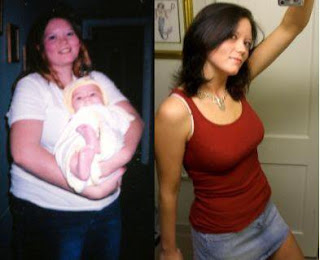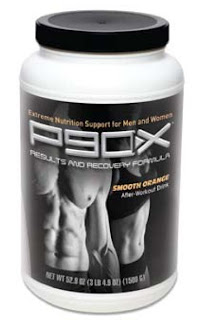 By Denis Faye
By Denis Faye
Few topics boggle dieters and fitness enthusiasts the way sugar does. Is this simple carbohydrate the key to unlocking elite sports performance? Or is it the chains that drag our country deeper into the obesity epidemic? Annoyingly, the answer is both. But before you throw your hands up in frustration and grab yourself a Twinkie
®, let's take a minute to talk about sugar. It's not as complex as it seems. In fact, with just a few guidelines, it's incredibly easy to use these simple carbohydrates for good instead of evil.
Rule #1: Just say "know."
Here's a grossly oversimplified look at how sugar, also known as simple carbohydrates, works. Just as with all carbs, you eat sugar and it's absorbed by your blood, where, if you have the right amount of it, the insulin in your system converts the sugar to energy. However, if you introduce too much sugar into your system, the insulin stores it as body fat. A little stored body fat is fine; the body likes some emergency fuel. However, if your blood sugar spikes too often and the insulin has to work too hard converting fat, this can lead to a variety of health issues, including type 2 diabetes and heart problems.
As we'll discuss later, when your body obtains sugar from natural sources, like fruits and veggies, the process tends to be checked by fiber, which slows absorption. However, when you eat foods with added sugar, this can overwhelm the usual checks and balances, causing problems like those nasty blood sugar spikes. To make matters worse, consuming too much added sugar can cause a host of other problems, including tooth decay, increased triglycerides (or stored fat), and malnutrition (from overconsumption of foods filled with empty calories and deficient in nutrients).
If you wanted one overarching rule to work from, you might choose to avoid added sugars entirely. You'll get all the energy you need from foods with naturally occurring sugar. That said, there are times when refined sugar is okay or even beneficial. If you're able to build yourself a lifestyle completely free of added sugar, nice work. But for the rest of us, the trick is moderation.
Rule #2: Less is more.
One teaspoon of table sugar has 15 calories. Honestly, if you have a couple of cups of tea or coffee in the morning and you dump the proverbial spoonful of sugar in each, that's 30 calories. If the rest of your diet is tight and you're active, it won't matter. If you're trying to lose weight and eating at a severe deficit, you'll probably want to skip those few spoonfuls of sugar, because table sugar is nutritionally void and you want every calorie to count nutritionally. Other than that, though, life's short—enjoy your java.
Rule #3: High fructose corn syrup is the enemy . . .
In a recent study out of Princeton University, two groups of rats were fed a sucrose solution and a high fructose corn syrup (HFCS) solution. The rats that consumed the corn syrup got fatter. "Some people have claimed that high-fructose corn syrup is no different than other sweeteners when it comes to weight gain and obesity," said study leader Bart Hoebel, "but our results make it clear that this just isn't true, at least under the conditions of our tests."
There are a few possible explanations for this. One is that the ratio of fructose to glucose in HFCS is slightly higher. Another is that in the HFCS manufacturing process, fructose molecules are free and unbound, making them easier to absorb. The fructose in table sugar is bonded to the glucose, which means it requires an extra step to be used.1
Rule #3.5: . . . and it's hiding behind every corner.
And you thought Invasion of the Body Snatchers was creepy . . . Avoiding the obvious sweetened foods like soda, cake, cookies, and pies is only half the battle. Manufacturers add HFCS (as well as other sugars) to a mind-boggling amount of foods because it adds flavor. If
it's in a bottle, box, or can, read the ingredients. You'll find sweeteners in everything from ketchup to peanut butter to bread to salad dressing. With a little effort, you can usually find versions of the same food with no added sugars or HFCS that are more nutritious and taste just as good.
Rule #4: No, the sugar in fruit isn't bad for you.
When the low-carb "revolution" hit in the early aughts, fruit was demonized for its sugar content. This is, in a word, ridiculous. Yes, fruit is loaded with sugar, but it's also usually loaded with fiber, which slows sugar absorption, making it an ideal way to get your simple carbs without straining your little insulin buddies. Fruit is also loaded with easy-to-absorb vitamins and minerals. Most fruit is also filled with water, yet
another benefit.
Even relatively low-fiber fruits like bananas offer far too many benefits to deny. Bananas, in particular, are rich in electrolytes, which are crucial to sports performance. As I always say, I defy you to introduce me to an overweight person whose biggest indulgence is fruit.
You can think of the ingredients in Shakeology® the same way. Sure, there's a little sugar in there, but the protein and fiber slow absorption, and the massive amount of nutrients makes it all worthwhile.
Rule #5: Occasionally, a hit of straight sugar is a good thing.

You're sitting around watching television. You haven't done much today. Your glycogen stores are up, and because you've eaten normally, your blood sugar level is balanced. Time for some Results and Recovery Formula™? Probably not.
Conversely, you just blasted a killer workout. You've blown through your blood sugar and your glycogen, leaving you shaky and tired. Now, getting some sugar in there to recharge quickly wouldn't be such a bad idea. Furthermore, since it'll rush in so fast, it's a great opportunity to add some protein and micronutrients to that sugar blast, because they'll rush into where they're needed just as fast.
If you genuinely gave the workout your all and you're truly wiped out, you won't even come close to storing that sugar as fat.
So there you go. Not so tough, huh? With a little forethought and self-control, keeping an eye on your carbs can be, ahem, a piece of cake.
 Beachbody does not guarantee any level of success or income from the Team Beachbody Coach Opportunity. Each Coach’s income depends on his or her own efforts, diligence and skill. See our Statement of Independent Coach Earnings located on the Coaches Corner on TeamBeachbody.com for the most recent information on our Coaches’ actual incomes.
Beachbody does not guarantee any level of success or income from the Team Beachbody Coach Opportunity. Each Coach’s income depends on his or her own efforts, diligence and skill. See our Statement of Independent Coach Earnings located on the Coaches Corner on TeamBeachbody.com for the most recent information on our Coaches’ actual incomes.

































